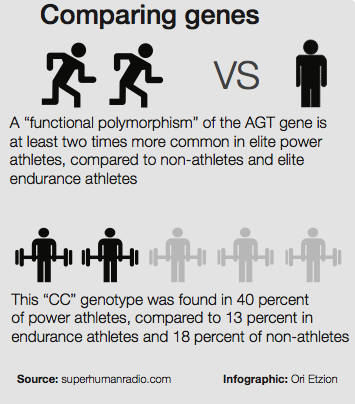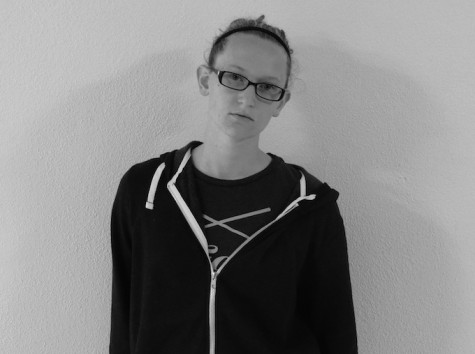Gene found in some power athletes
Recent study discovers genetic variations found in some athletes

November 13, 2013
If at first a sport seems daunting it may just not be in your genes. According to a study that found certain power athletes are more likely to have a genetic variance than other types of athletes.
Research conducted by Dr. Pawe Cieszczyk at the University of Szczecin, Poland concluded a polymorphism, which is a certain set of specific alleles of the angiotensinogen (AGT), is three times more common in power athletes (short-distance running, power lifting and jumping) than endurance athletes (long-distance running, swimming and rowing).
The study also concluded power athletes are twice as likely to have this polymorphism than non-athletic people.
The AGT gene, however, is not a main component in the muscle building process. Instead its purpose is to regulate blood pressure, body salt and fluid balance.
According to strength and conditioning coach Jessica Gust, young children tend to play to their strengths when choosing a sport, and generally choose a sport for which they are genetically equipped.
“You’re not going to find a really genetically endurance type athlete who sprints in track,” Gust said. “If they do, they aren’t going to be as successful as someone more genetically able.”
Senior varsity track sprinter Imara Hixon said she is not surprised by the results of this research.
“It makes sense because it takes more muscle build to participate in (power) sports,” Hixon said.
Additionally, 40 percent of power athletes were found to have two copies of this genotype (CC allele). In comparison, 13 percent of endurance athletes and 18 percent of non-athletes were found to also have the CC allele.
While this gene is abundant in power athletics communities, it is still unknown whether it affects the performance of an athlete.
According to biology and genetics professor Perry Hackett from the University of Minnesota, studies concerned with the genetic and biological athletic ability of athletes is not uncommon.
“People are interested in what differentiates various people,” Hackett said. “(They want to know) why one group of people seems to excel and other people don’t.”
Sophomore junior varsity track sprinter and varsity soccer player Mack Trotter said he does not believe this discovered AGT gene is the sole factor in determining someone’s athletic ability.
“Athletes come from all different backgrounds,” Trotter said. “(The polymorphism) is just one small factor in determining one’s athletic skill and strength, because the human body is largely unknown.”
According to Gust, once athletes finds a sport that fits their genotype, they will hesitate to leave their comfort zone of this sport.
“It you ask a soccer player to run a marathon, they’re going to say ‘heck no,’” Gust said. “But they run incredible amounts in soccer practice without realizing it.”



